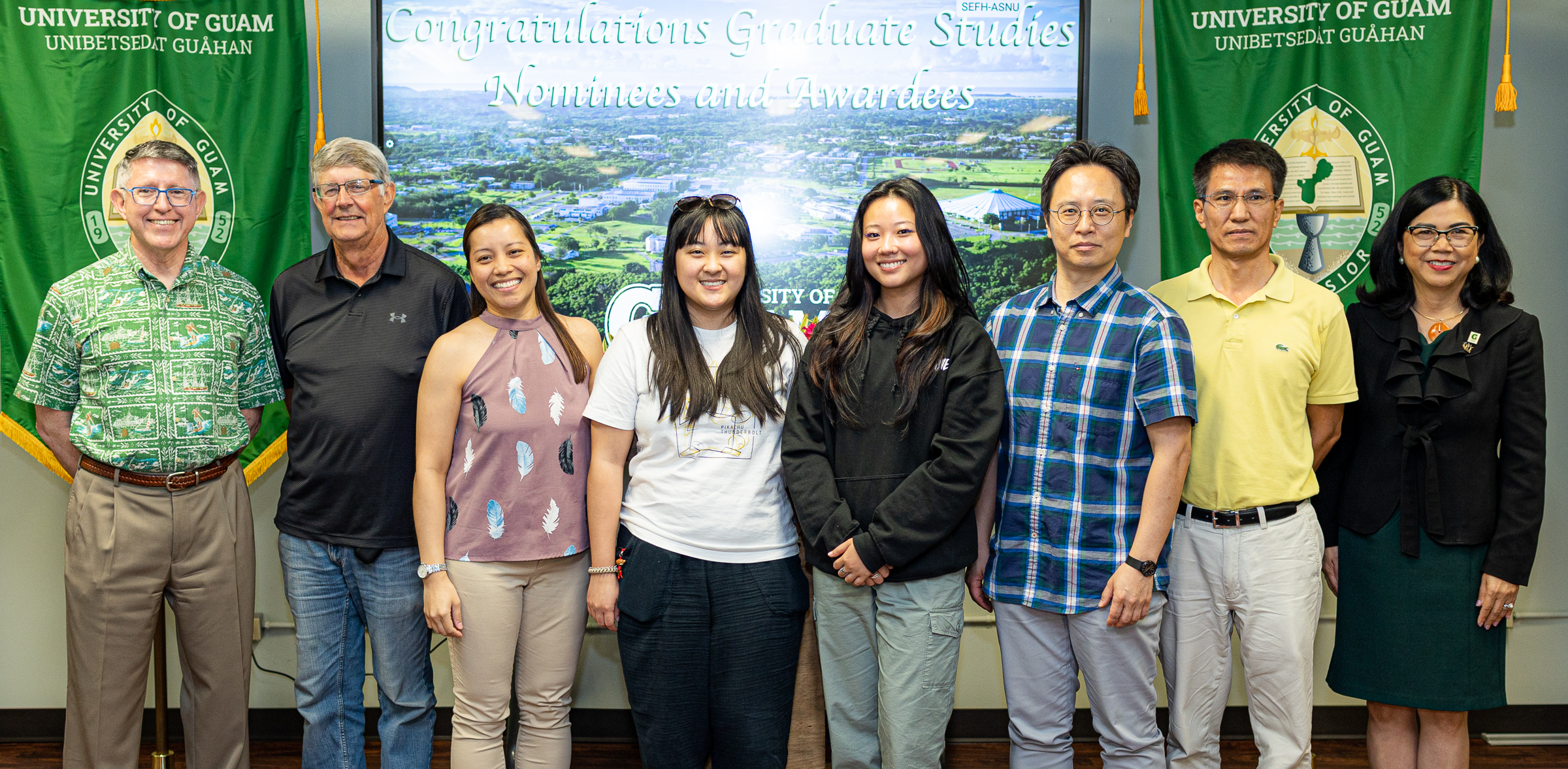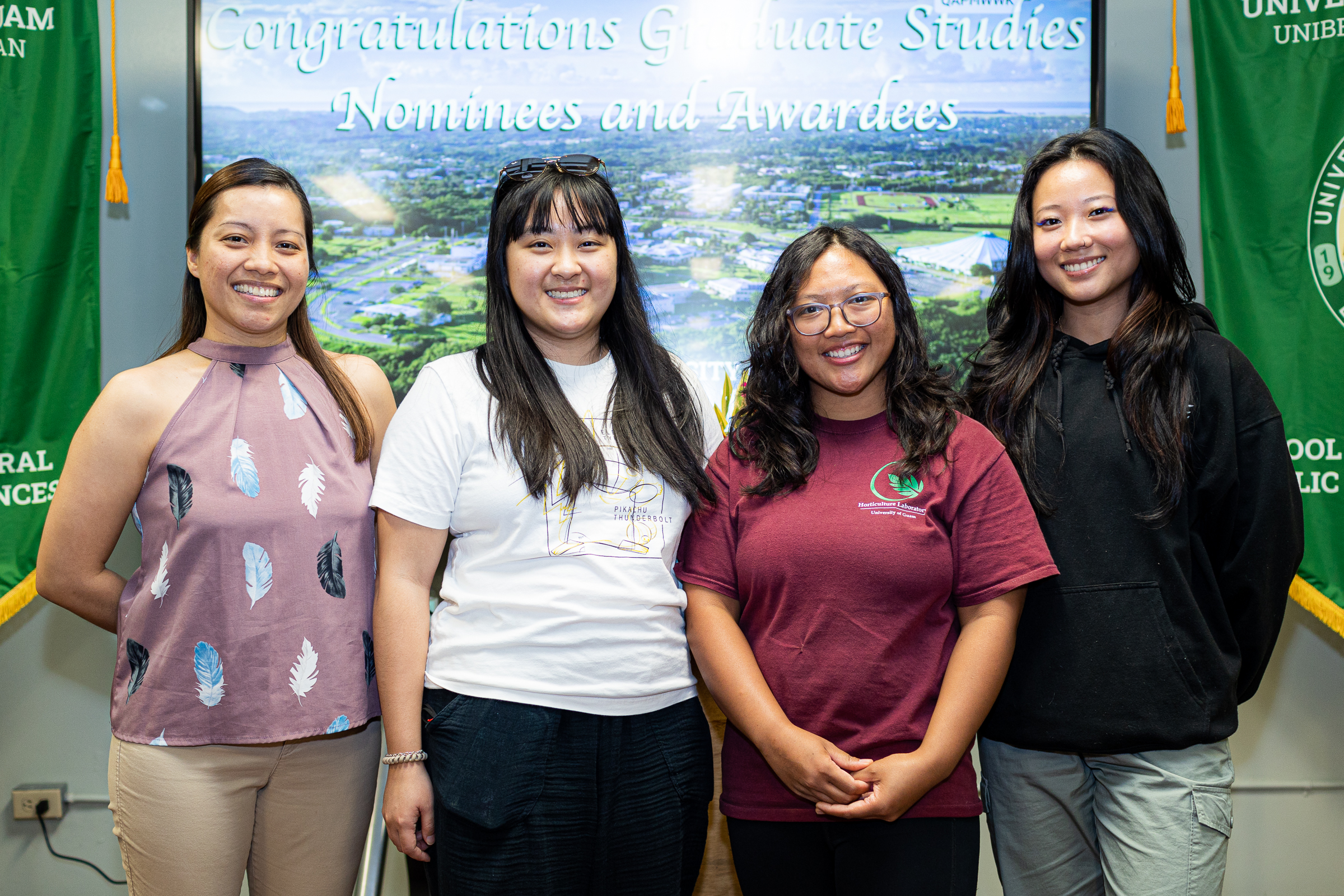
At the 2023 Graduate Awards Ceremony, three WERI Environmental Science (EV) graduate students were recognized for their achievements in their research.
Mallary Dueñas, the lab manager at the Water Quality Lab and a recent graduate from the EV program, was awarded the Presidential Thesis Award for her work which focused on the distribution of PFAS in Guam’s capital, Hagåtña, where two groundwater production wells had elevated concentrations of perfluorooctanesulfonic acid (PFOS), one of the six PFAS listed in USEPA’s third unregulated contaminant monitoring rule (UCMR3).
With the guidance of her advisor, Dr. Kim, and her committee members, Ms. Dueñas was able to complete her research thesis in December 2022.

Dr. Kim writes in his letter of recommendation for Ms. Dueñas:
“She has excelled greatly in her position as a chemist and has worked even harder to achieve her graduation degree. She continuously strives to achieve the best for herself and her colleagues. This has become more evident in her promotion as the laboratory manager of the Water Quality Laboratory in 2020.”
Ms. Dueñas presented her research at the Conference on Island Sustainability in April 2023. She is currently working with her thesis committee chair to publish her research in a WERI Technical Report, and she hopes to contribute to future PFAS research in Guam and the Marianas.
Hazelle Ko, a current EV graduate student, receives the award for Outstanding Graduate Student. She started working with Dr. Wen on research that focused on geospatio-temporal analysis of patterns and trends of salinity levels in Finegayan. Since her enrollment in the EV program, she has been involved in four research projects, which include analysis and modeling of patterns and trends of salinity in Finegayan Basin, Tumon-Yigo Basin and Hagåtña Basins, and one focusing on impacts of precipitation on salinity levels in Finegayan Basin.

Dr. Wen writes of her excellent performance in academics:
“During her work on the project, she expressed interest in our Master of Science in Environmental Science (EV) Program, and she enrolled in the EV program in Fanuchanan 2022 and excelled in all graduate courses. Based on feedbacks from instructors, she is performing very well in all of those courses and is expected to achieve outstanding grades in Fanomnakan 2023.”
In the past year, Ms. Ko has published two WERI technical reports, and submitted a paper for the 14th International Conference on Environmental Science and Development, May 25-27, 2023 in Xiamen, China.
Andriana Chang, also a graduate student enrolled in the EV program, was also recognized at the awards ceremony with a nomination for the Innovative Research Award.
Their achievements continue to expand WERI’s list of outstanding students and further represents the excellence of the University of Guam.



